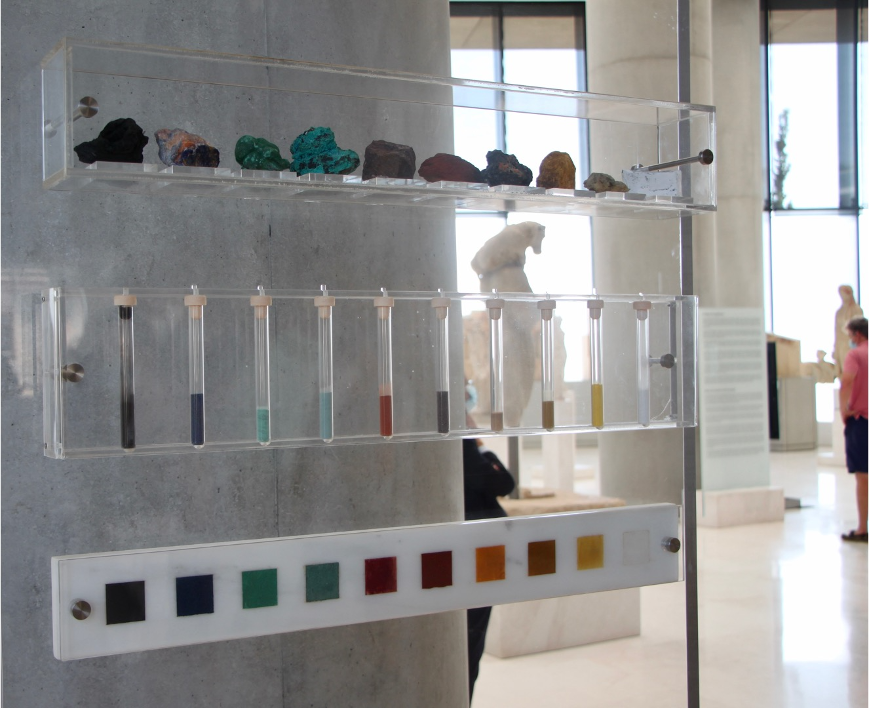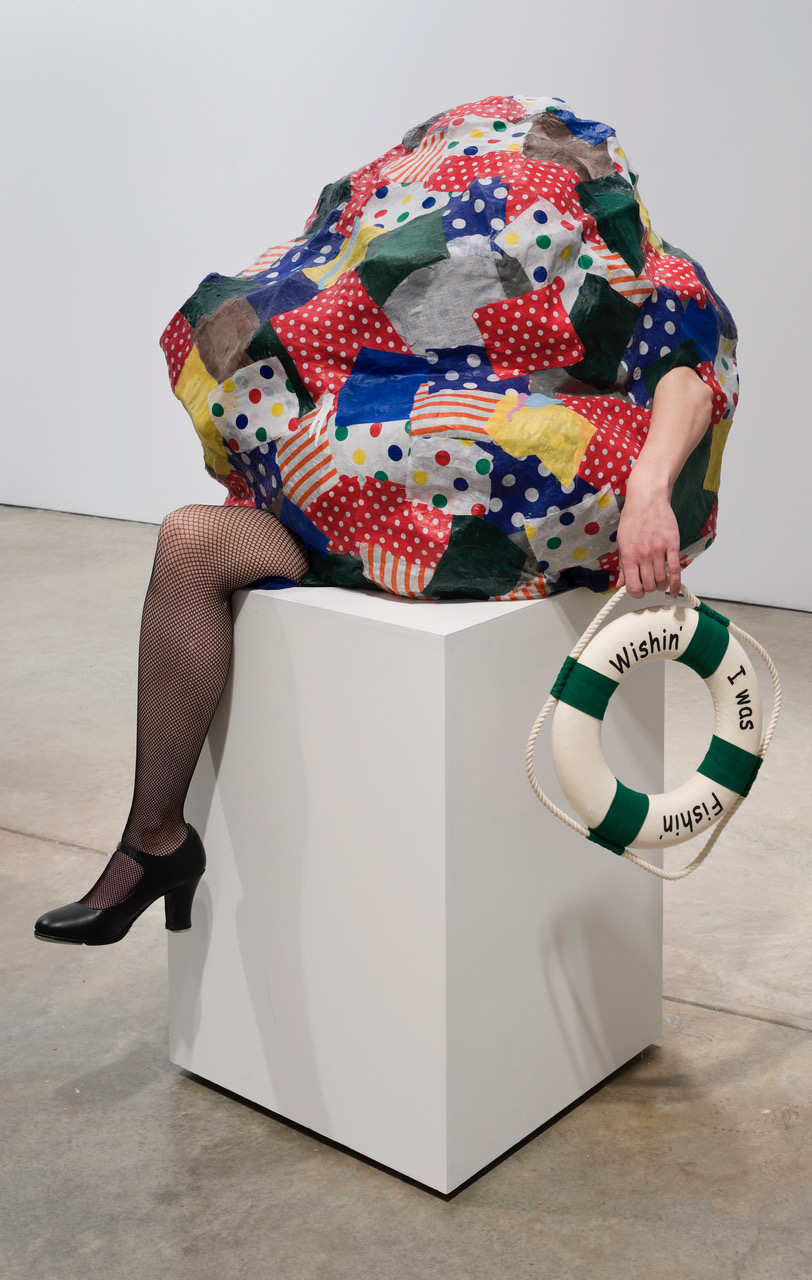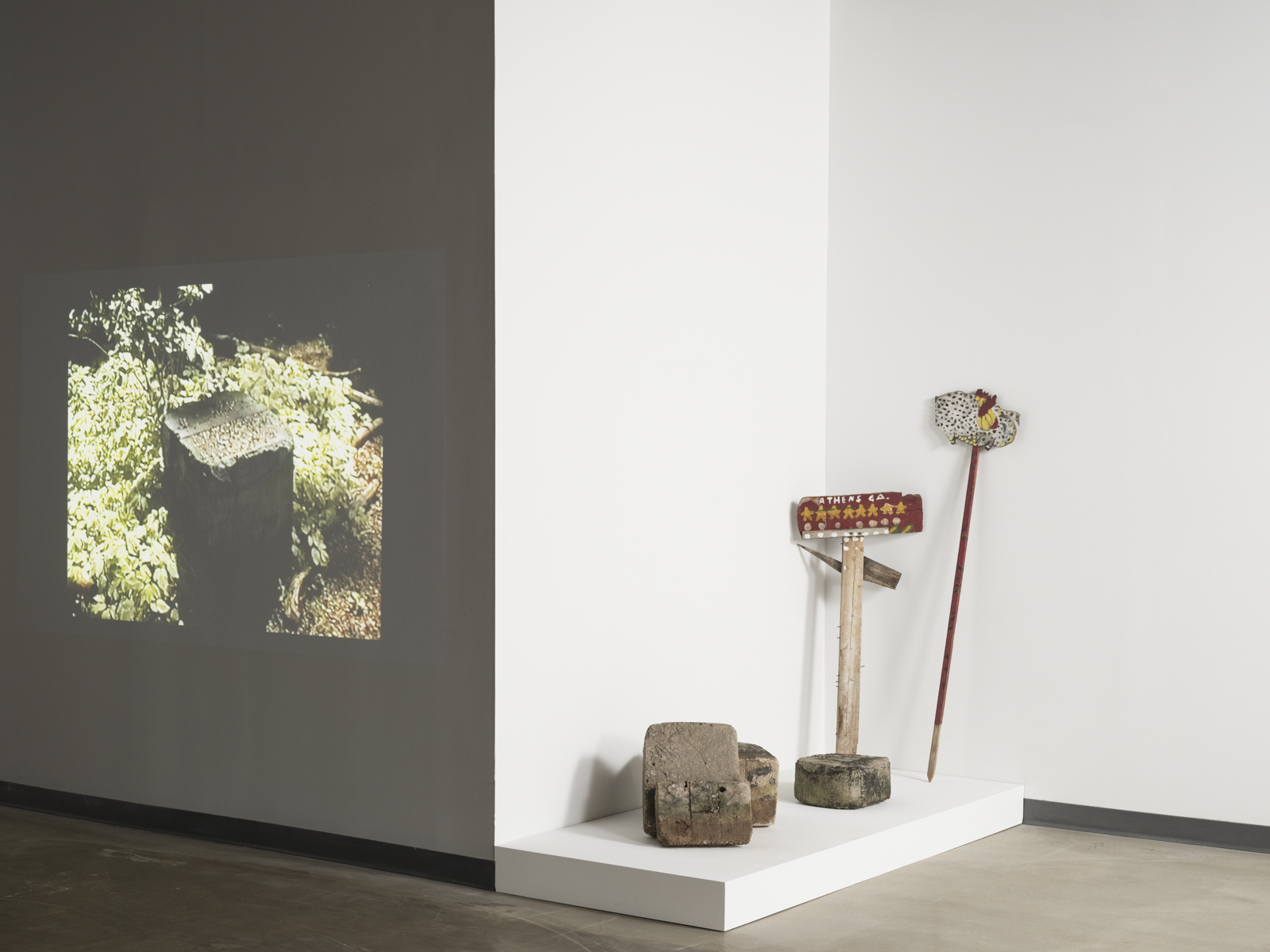2024 Shouky Shaheen Lecture | Jennifer Stager
March 28th, 2024 at 5:30 pm

Date & Time
March 28th, 2024 at 5:30 pm
– March 28th, 2024 at 7:00 pm
Location
Lamar Dodd School of Art | S150
Type of Event
Shouky Shaheen Lectures
Academic Area
Art History
Speaker Name: Jennifer Stager
Speaker’s Website: Faculty Profile
Department: History of Art
University or Organization: Johns Hopkins University
Image: Materials and ground pigments on display in the Akropolis Museum, Athens. Photo by Jennifer Stager
Join us for the 2024 Shouky Shaheen lecture Plato’s Polychrome Pharmacy, presented by Jennifer Stager, assistant professor of art history at Johns Hopkins University.
Lecture Abstract
Over the past few centuries, people have continuously (re)discovered the many colors of and on ancient Greek and Roman art and architecture and notions of the classical built from it. In contrast to modernity’s relentless rediscovery, colors—of materials, bodies, and nature—were once a quotidian part of antiquity. Ancient Greek philosophers sought to understand color’s ubiquity as a phenomenon indexing the visible world. At the same time, ancient artists built up all manner of objects from material colors sourced from the earth and manipulated in their workshops. Healers carefully observed the body’s changing colors to diagnose illness and worked with the earth’s material colors—with pharmaka—to restore health. Such engagement with material colors also engaged connected supply-chains and the laborers working to extract, move, and prepare them. In his analysis of Plato’s Phaedrus, Jacques Derrida foregrounds the notion of the pharmakon as both medication and poison, but reducible to neither. Building from this multiplicity, this talk considers pharmaka as both pigments and drugs to analyze the intersections of polychromy, philosophy, and medicine.
About the lecturer
Professor Jennifer Stager specializes in the art and architecture of the ancient Mediterranean and its afterlives. Her areas of focus include theories of color and materiality, feminisms, multilingualism and cultural exchange, disability studies, ancient Greek and Roman medicine, performance, and classical receptions.
Stager’s first book, Seeing Color in Classical Art (Cambridge University Press 2022), offers a critical account of color as material in ancient Mediterranean art and architecture. Traversing sites from Athens to Antioch, Seeing Color in Classical Art traces color across media, including handheld panel paintings, painted monumental reliefs, alloyed bronzes, and mosaic floors. This book explores the materiality of color from the ground up through analysis of the pigments, dyes, stones, soils, and metals that artists crafted into polychrome forms. Artistic practices also shaped a literary and philosophical landscape encompassing Sapphic lyric, Presocratic atomism, and Theophrastan natural history and produced a discourse on color by ancient Greek writers that reverberates in the present. Despite these abundant traces of color, ancient Mediterranean art has long been reduced to the white marble of its ruins to stage an idealized, monochrome picture of the past. This book examines the process by which this reception tradition has elevated whiteness and feminized and racialized color. In response, this book illuminates the construction of the category of the classical in modernity and challenges its claims to order and exceptionalism.
Ancient artists and healers often put the same materials to different use—making art and healing people—a connection that Stager explores in her next book. Making Medicine: The Arts of Healing in the Ancient Mediterranean (in progress) explores the importance of the visual arts for the development of ancient medicine. Crafting such a visual history intervenes in the predominantly text-driven histories of medicine to elevate women healers, laborers across the gender-spectrum, and transcultural knowledge-sharing produced through and archived in the visual arts.
Professor Stager’s work has been supported by fellowships from the National Institute of Humanities and the Getty Research Institute, the Center for Advanced Study in the Visual Arts, and the Center for Hellenic Studies in Washington DC, and the Johns Hopkins Catalyst Award.
Shouky Shaheen Lecture Series
The Shouky Shaheen lecture is given annually at the Lamar Dodd School of Art by an internationally recognized artist or scholar at the Dodd. This lecture was established through the generosity of Doris Shaheen as a birthday gift to her husband, Shouky.





